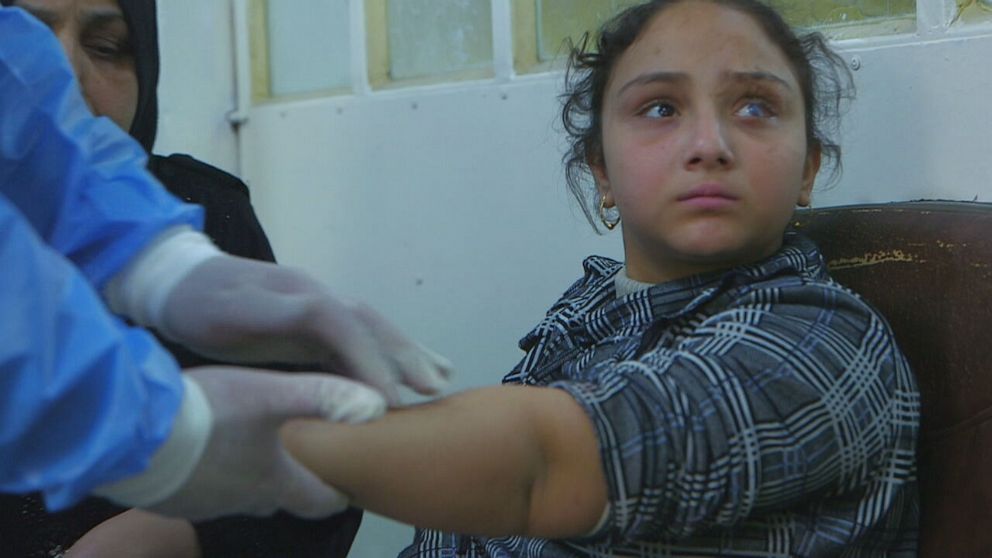In Iraq, scars of ISIS linger on surviving families trying to find stability
For the Moussa family, the thought of home is now a painful memory.
“All of it is burnt,” wife and mother Niran Shaika Khormz, told ABC News in Arabic.
It’s the home where she lived with her husband Raed Moussa and their two children.
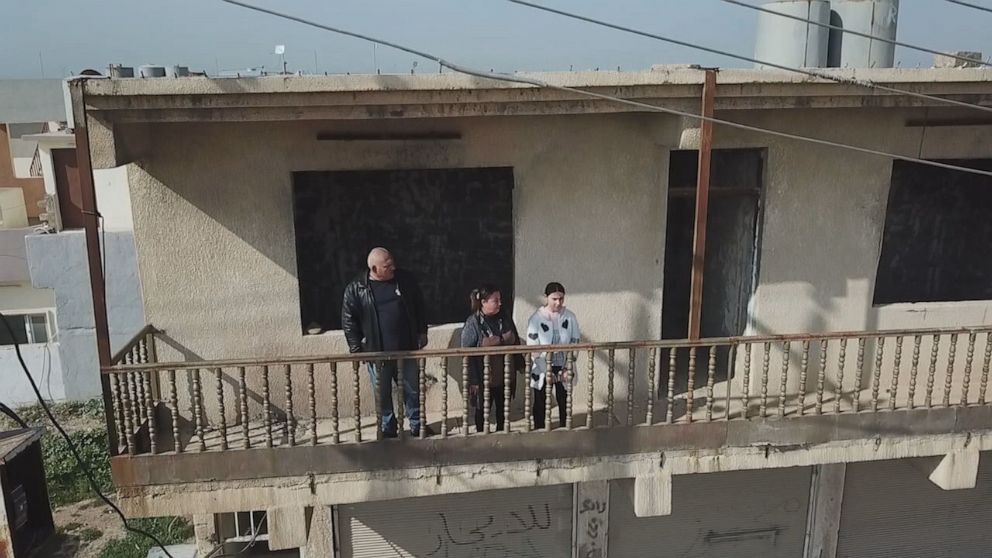
They fled Baghdad almost 20 years ago to escape the war after Moussa’s father was murdered for being Christian. They settled in the majority-Christian city of Qaraqosh, in the north of Iraq. It was supposed to be their safe haven, but war found them again.
ISIS occupied the city from 2014 to 2016 and destroyed their home. They say they lost every possession, including their furniture, television and personal belongings.
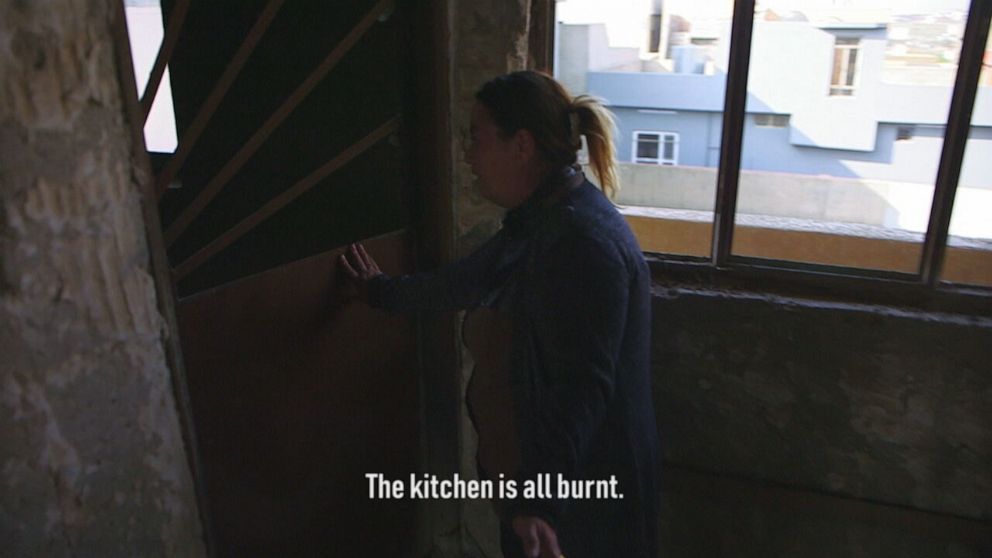
“I never imagined this. Never,” Moussa said, shaking his head.
Watch "Nightline" weeknights at 12:35 a.m. ET on ABC and on Hulu
For now, the militants are gone. But the pain from their destruction runs deep throughout the community.
The Moussas are just one family among thousands struggling to rebuild their lives in a country that remains incredibly fragile.
Iraqis are still fighting and protesting against foreign interference, corruption and terror, while also still battling ISIS extremists. Since 2019, there have been mass anti-government demonstrations in Baghdad and the south of Iraq calling for an end to corruption.
Just last month, a rocket attack struck a base that held United States and coalition forces. No one claimed responsibility for the attack, for which there were no reported casualties.
The oil rich nation is trying to stand on its own, working for economic and political stability while still reeling from the aftermath of decades of war.
In 2014, the Moussa family was taken captive by ISIS.
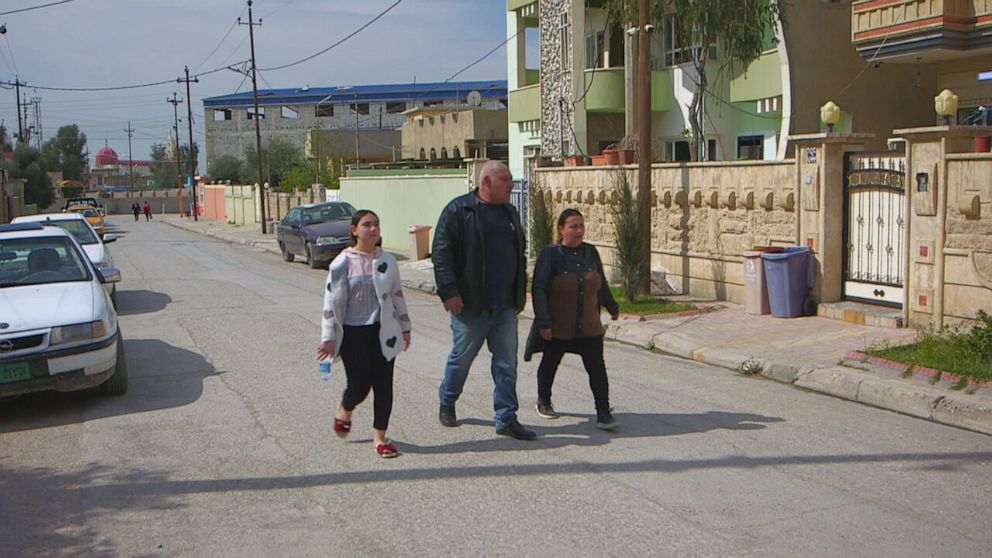
Raed Moussa showed ABC News the small house where he had been held captive. Kneeling down, he demonstrated how he’d been held and beaten.
In Arabic, he explained that he was held “All day. Every hour they would unchain us and let us relax, then chain us back up again.”
Moussa says he repeatedly begged the guards to let him check on his wife and daughter, who were being held in a different house just up the street.
His daughter, Mariana Raed Mounir, remembered how the city’s ISIS leader wanted to take her as a sex slave -- a so-called “ISIS bride” -- just like so many other girls and women held captive by ISIS militants. Her mother repeatedly begged them not to take her.
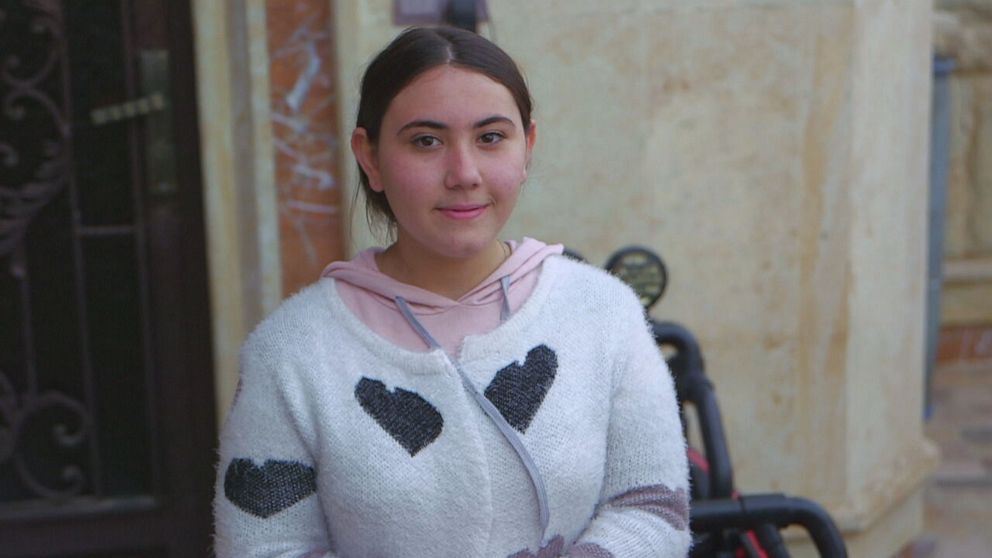
After many attempts, the family finally escaped to Mosul, where Raed Moussa’s brother lived. The family was finally safe but their lives were changed forever.
The family may be physically free but the nightmare of what happened to them is neverending.
“I’m scared… my son is scared,” Khormz said. “My husband is scared and wakes up at night screaming.”
It’s not just the terror of the past that haunts them but also the dread that the militants that once terrorized them could return at any time.
Both the U.S. and Iraq declared victory over the Islamic State in 2017. Yet, today there are believed to be 8,000 to 16,000 fighters still active in Iraq and Syria, according to a 2020 report to Congress from the lead inspector general.
The caliphate may be gone, but the U.S. military and expert analysts are now warning ISIS has the makings of a “growing and dangerous insurgency” today, according to the report.
Iraqi government forces are still out battling the militants daily. ABC News met with one Shia militia group heading across the desert of the Nineveh Province in the country’s north, hunting down extremists with more than 100 men. Their commander said that just that day, they had found bombs planted by ISIS.
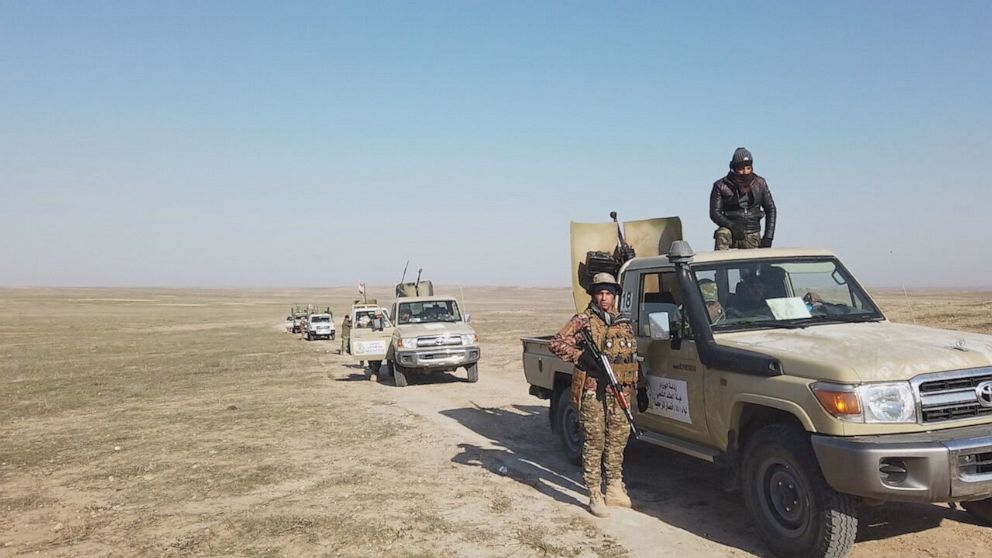
Across the border, in Syria, the situation is reportedly worse.
“We won’t allow ISIS to do any killing in Iraq nor in any other country, whether in the Western world or the Arab world,” the commander said. “We won’t allow ISIS… Never.”
The scourge of ISIS has left a stain that lingers throughout parts of Iraq. Family after family shared similar stories of lives that had been shattered and the difficulties of rebuilding.
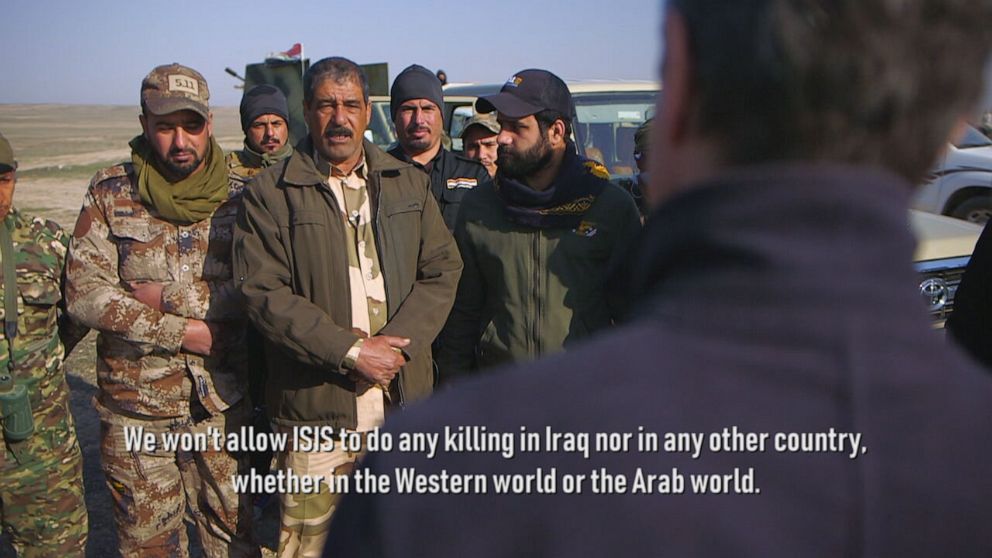
A little girl named Malak, whose name translates to “Angel,” was only 6 years old when ABC News met her in 2017. She and her family live in Mosul, the former ISIS capital of Iraq.
Malak, her older sister Dalal and their family were used by ISIS as human shields, forced to run directly into the line of fire during a conflict with the advancing Iraqi army.
Their father was killed in the incident and both girls were severely injured. Dalal lost her hand and Malak’s eye was damaged, impairing her vision. Her body was left riddled with bullet wounds and scars.
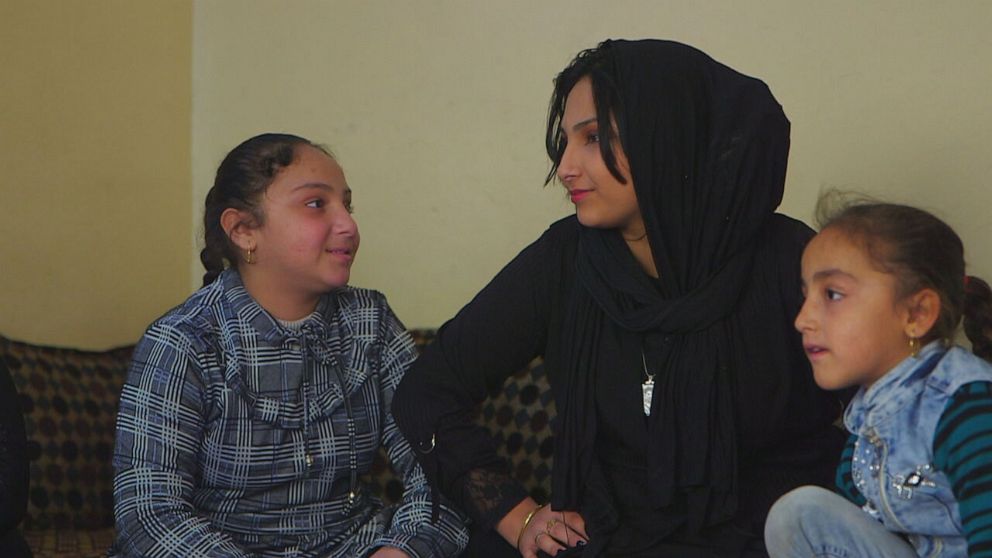
Despite the trauma they’ve experienced, both girls remained hopeful for the future when ABC News spoke to them in 2017. Dalal told us she dreamed of becoming a teacher.
“God willing, I’ll finish and meet my goals,” she said in Arabic. “God willing, I’ll do it all.”
After four years, ABC News returned to Mosul to visit the family.
Malak is now 10 years old, quieter and shy. But she is still holding strong, in spite of the fact she has lost all sight in her wounded eye.
Her older sister Dalal has grown up, too; she’s now 19 and married. She lives with her husband, who works in a local market, and his family.
Dalal still suffers from the wounds she endured four years ago, including pain in the area where she’d lost her hand.
Their mother, Dhikraa Ahmed Hindi, struggles every day to be both mother and father to her children. She said life is better since the last time they met with ABC News, but her daughters feel the loss of their father everyday. ISIS robbed them of the people they love and their dreams for the future.
Dalal said she tried to pursue her dream to become a teacher but was unsuccessful.
“I tried to go back [to school] but they didn’t accept me,” she said. “They said I was too old. They said ISIS took you four years ago and you are behind.”
Malak has been able to attend school, but her mother is deeply concerned about her health. Malak must have regular health checkups but Iraq’s health care system has been decimated by the war.
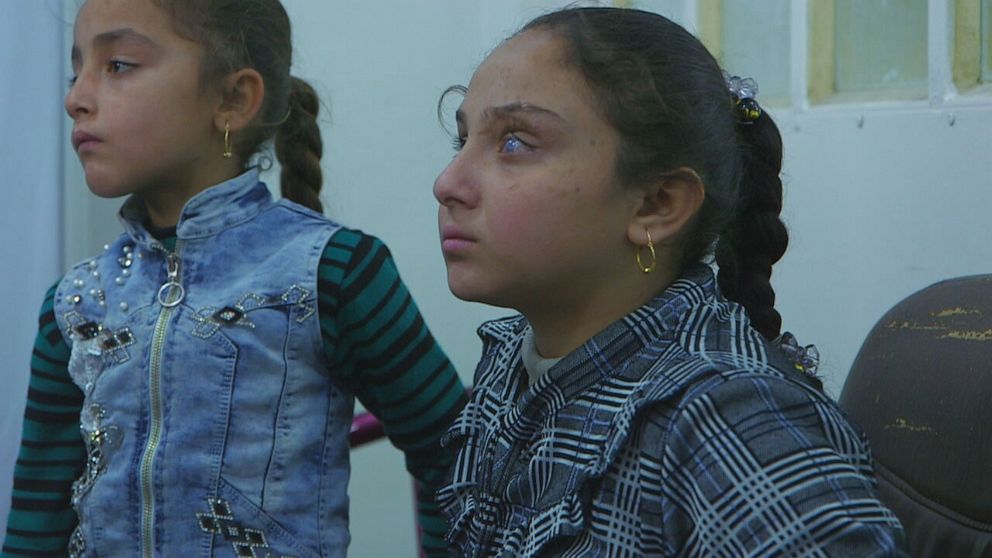
The doctors say they have some expertise in Malak’s condition, but almost none of the necessary equipment. Coalition forces had destroyed one of the city’s main hospitals when it was being used as a base by ISIS.
“In this hospital, we don’t have a plastic surgeon, we don't have a neurosurgeon,” her doctor told ABC News.
Malak must travel elsewhere for care. She needs reconstructive surgery and specialized eye care to determine if her sight can be restored. All of it requires money that the family doesn’t have.
“I don’t have a husband or a son in the house who is able to work. We’re dependent on help from others,” Malak’s mother said.
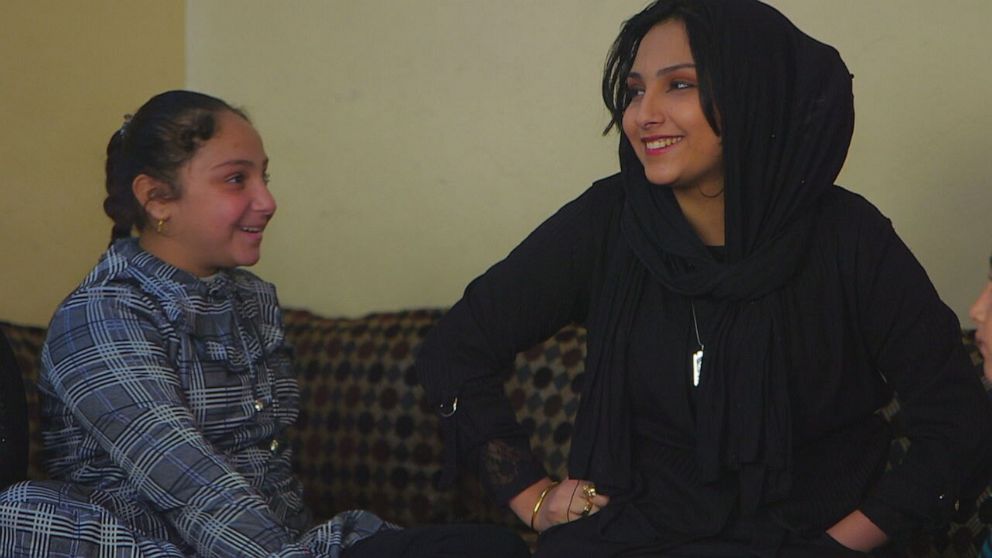
The family still remains hopeful that both daughters will be able to receive the surgeries they need and build better lives for themselves. Dalal now dreams of having a healthy child and Malak wants to be a doctor.
So many Iraqis have lost so much -- their health, their homes, their childhoods -- but many only ask for one thing.
“We’re just looking for peace,” Malak’s mother said. “We don’t need anything more than that.”
